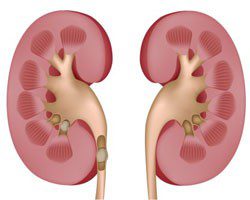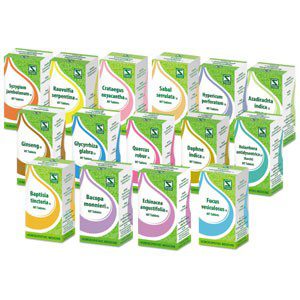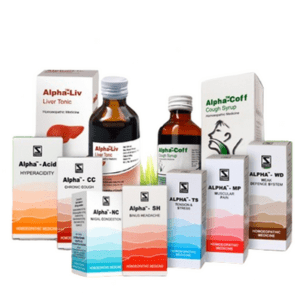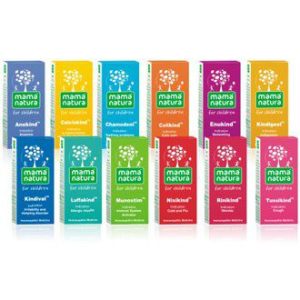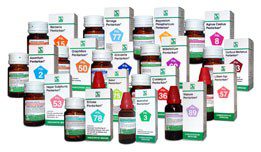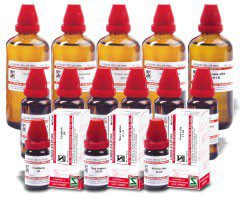Doctors Zone
Journal (JEBH)
Alpha™- Liv Drops
Alpha – Liv Drops Due to high demand from the market, for a formulation in drops for the liver, apart from the syrup already available in the market, Schwabe India developed this product. Introduction The liver plays a key role in metabolism. It has anabolic and catabolic, exocrine and endocrine functions. The liver is a blood reservoir, filter and store of different substances (e.g. glycogen, vitamins). It is the site of serum protein (e.g. albumin, prothrombin, fibrinogen) and enzyme synthesis. Metabolic processes (e.g. bilirubin, hormone, carbohydrate and lipid turnover) and the removal of toxic products are important liver functions. 1 Hepatotoxins (e.g. alcohol, tetracycline, acetaminophen, fungal toxins, and anabolic steroids) can cause specific damage to liver cells. Toxic hepatitis may be clinically silent or severe enough to lead to the rapid development of hepatic failure. Clinical features include hepatomegaly, enzyme abnormalities, fever, abdominal pain, anorexia, nausea, vomiting and weight loss. In patients with underlying cirrhosis, manifestations of portal hypertension may predominate. Aversion to fatty food, abdominal discomfort, nausea and vomiting after meals may be symptoms of 2 cholelithiasis. Jaundice results from accumulation of bilirubin. It has non-hepatic as well as hepatic causes. Hyperbilirubinaemia may be due to abnormalities in the 3 formation, transport, metabolism or excretion of bilirubin. TM Alpha -Liv Drops aids recovery and normalisation of liver functions. Severe liver disease needs specialised treatment. Indications: Slow liver functions, fatty liver, and for supportive treatment of hepatocellular jaundice and toxic liver damage.

Gastrobin Used for Hyperacidity, Heartburn, Indigestion etc – Schwabe India
Schwabe News Volume 4 | Issue 6 | June 2013
Gastrobin®
Introduction
Gastric disorders include hyperacidity, heartburn, indigestion, inflammatory gastric complaints (gastritis), acid reflex disease, etc. They are commonly covered by the generally used term gastric problems. Many people have these problems at one time or the other. Among these hyperacidity, heartburn and indigestion are more common. Hyperacidity or acid dyspepsia is due to excretion of higher acids in the stomach. People with hyperacidity often have a feeling of heartburn. Heartburn is a painful burning feeling just below or behind the sternum due to various gastric conditions. Many drugs like aspirin, ibuprofen, beta-blockers, anti-depressants, substances like caffeine and alcohol, beverages like carbonated drinks, and foods like spicy and fatty foods, excess citrus fruits and juices may induce heartburn, inflammatory and other gastric symptoms.1,2,3,4,5,6
Gastrobin® is an established product currently used in the treatment of such gastric disorders and associated symptoms7. It reliably acts in cases where the gastric mucous membrane is inflamed due to excess gastric acid. It regulates the acid level in the stomach, thus alleviating typical complaints of hyperacidity, such as heartburn, burning in the stomach, pressure and pains in the stomach, gastric sensitivity to pressure, acid eructation and sour or acid vomiting. Gastrobin® has shown itself to be of great value in treating cases of nervously irritable stomach with hyperacidity.8
The therapeutic components of Gastrobin®, Homoeopathically processed Acidum sulphuricum, Capsicum annum, Natrum phosphoricum, Phosphorus and Robinia pseudocacia, are proven homoeopathic remedies covering various spheres of gastric diseases.
Composition: Acidum sulphuricum 4x 10%, Capsicum annum 3x 10%, Natrum phosphoricum 1x 0.1%, Phosphorus 5x 10%, Robinia pseudocacia 2x 10%, Excipients Q.S. Alcohol content v/v 36%
Proven Indications: of the individual ingredients in the sphere of claimed action.
Acidum sulphuricum: It covers heartburn and sour eructations and useful in cases of gastralgia in which the pains are either violent and contractive, or are of a dull, heavy, aching character with pyrosis and flatulence. Loss of appetite and great debility are also covered.
Capsicum annum: It covers symptoms like burning in the stomach after eating, great flatulence from vegetables, flatulent colic, atonic dyspepsia and painless rumbling in the abdomen.
Natrum phosphoricum: It acts in the conditions of sour eructations after eating, sour vomiting, dyspepsia from fatty food, heaviness and pressure in epigastrium, flatulence, rumbling, symptoms worse after eating.
Phosphorus: It is an established medicine for eructations, vomiting of food or blood that are temporarily ameliorated by ice-cold drinks, but returns as the stomach becomes warm. Dyspepsia with excessive flatulence and white tongue.
Robinia pseudocacia: Helpful in conditions like constant eructations of a very sour fluid, heartburn and acidity especially at night, on lying down, distention of stomach and bowels, regurgitation of acid and bile, with a feeling that everything turns to acid.
Dosage: Unless otherwise prescribed, 10 to 15 drops, to be taken 3 times per day before meals. A suitable diet is recommended to complement this therapy. If complaints are not relieved, consult a specialist.
Note: The product contains alcohol. In the case of children, pregnant and lactating ladies and in certain serious liver and alcohol problems, consult a specialist.
Side effects: No side effects of Gastrobin® are known.
Contra-indications: No known contra-indication so far.
Interactions: None known up to present.
Presentation: 20 ml glass bottle pack.
References:
- Stomach disorders, Medline Plus website database, National Institutes of Health, U.S. Department of Health and Human Services.
- Heartburn, Medline Plus Medical Encyclopaedia (online), National Institutes of Health, U.S. Department of Health and Human Services.
- Gastroesophageal reflux disease, Medline Plus Medical Encyclopaedia (online), National Institutes of Health, U.S. Department of Health and Human Services.
- Gastritis, Medline Plus Medical Encyclopaedia (online), National Institutes of Health, U.S. Department of Health and Human Services.
- Heartburn, Gastroesophageal Reflux (GER), and Gastroesophageal Reflux Disease (GERD), A publication by National Digestive Diseases Information Clearinghouse (NDDIC), National Institute of Diabetes and Digestive and Kidney Diseases, National Institutes of Health, U.S. Department of Health and Human Services, NIH Publication No. 07–0882, May 2007.
- Information on Gastrobin in the webpage https://www.schwabehealth.com, Dr. Willmar Schwabe GmbH & Co. KG, Germany.
- Product Leaflet, Gastrobin, Deutsche Homöopathie-Union, Ottostr. 24, D-76227 Karlsuhe, Germany.
Recent Advancements in Basic Homeopathic Research – A Report on Two Significant Publication
In a study conducted at the Experimental Farm of the State University of Santa Catarina, Brazil, researchers investigated the impact of homeopathic treatments on piglets during the nursery phase. The study aimed to determine whether homeopathic agents could reduce fighting behavior, improve growth performance, and affect hematological, metabolic, and oxidative variables. The study included 108 weaned piglets divided into four groups: a negative control group receiving only the basal diet, and three groups receiving different homeopathic treatments at varying dosages.
Journal of Evidence Based Homeopathy Volume: 1, Issue: 1, January - June 2023
Comprehensive articles

Agrohomeopathy – A Review
Short cases

Unmasking the Intricacies: A Pyogenic Abscess Case Report

Lichen Simplex: A Singular Case Study

Ranula Unveiled: A Case Report and Management Approach

Lichen Simplex: A Singular Case Study

A Puzzling Presentation: A Case Report of Jaundice
Recent provings and updated materia medica

Acidum Formicum

Mygale

Thea Chinensis
Materia medica on phytohomeopathy

Chrysarobinum

Sanguinarinum nitricum

Thiosinaminum
Mother tincture

Asparagus Officinalis

Ginkgo Biloba

Rosmarinus Officinalis
Product watch

Alpha™- Liv Drops

Good Morning™ Constipation Drops

Zauber™ Hair Drops
Research News











